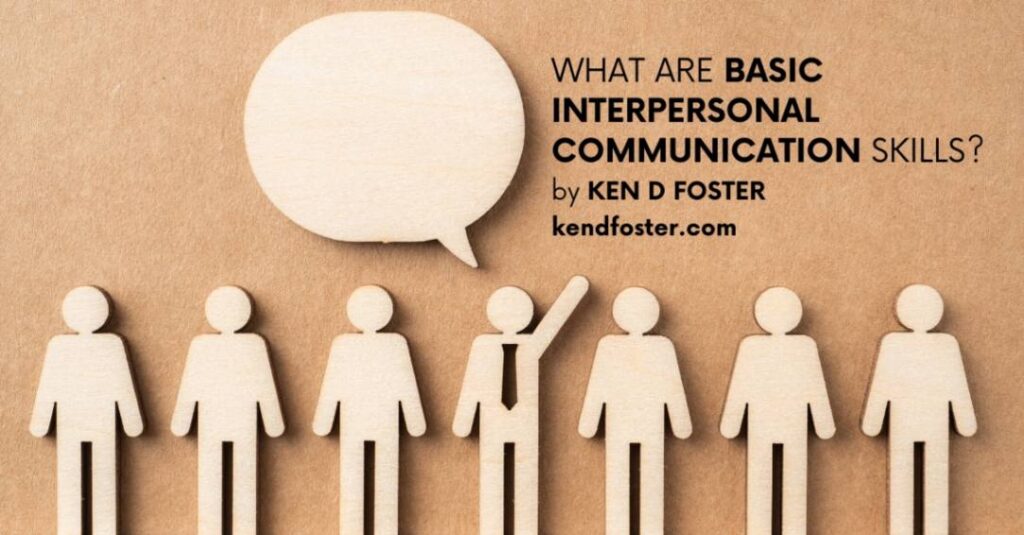
Communication is the core of human interaction. Basic interpersonal communication skills not only include the words we speak but also how we convey them, how we listen, and how we understand others. Mastering these skills is crucial to succeed in both personal and professional life.
In this article, let’s discuss the importance of basic interpersonal communication skills and the tips to improve them.
Basic Interpersonal Communication Skills Definition
Basic Interpersonal Communication Skills (BICS) is an unspecialized language necessary for day-to-day interactions with people. It consists of various components, such as:
- Speaking (conversational fluency)
- Active listening
- Vocabulary
- Clarity of expression
- Pronunciation of words
- Turn-taking
- Body language
Why Are They Important?
Here’s why basic interpersonal communication skills are important.
- They contribute to personal growth by helping individuals to become more self-aware, empathetic, and open to different perspectives.
- They help you succeed professionally by enabling you to express your ideas clearly, collaborate with colleagues, and negotiate effectively.
- They facilitate daily interactions by assisting people in clearly communicating their needs, thoughts, and feelings to others.
- They help build positive relationships with family, friends, colleagues, and investors.
- They help avoid conflicts by preventing misinterpretations. In case there’s a conflict, BICS makes it easier to resolve them.
- They help people to express their emotions, which is necessary for mental and emotional well-being.
- They promote active participation in community activities.
- They help in promoting your voice on important issues.
Tips To Improve Basic Interpersonal Communication Skills
1. Active Listening
Active listening refers to paying close attention to what others say without interrupting. It goes beyond just hearing words; it’s about truly understanding the message conveyed and showing that you’re involved in the conversation by making eye contact, nodding, and providing verbal cues like “I see” or “Tell me more.”
2. Empathy
“Put yourself in the shoes of the person you’re communicating with.” This phrase refers to how you would feel and react if you were in their situation.
Always try to understand the emotions and feelings of the person you’re communicating with, as it’s among the important basic interpersonal communication skills.
3. Effective Questioning
Asking open-ended questions is essential for effective communication because it encourages others to share more details and thoughts. Avoid questions that can be answered with a simple “yes” or “no.”
4. Clear and Concise Speaking
Speaking clearly and concisely includes:
- Fluency
- Being straight to the point
- Pronouncing the words correctly
- Avoid using overly complex language, especially when communicating with a diverse audience.
5. Pay Attention to Your Tone
The tone of your voice will significantly impact how your message is received. A friendly and respectful tone ensures that your message is received correctly. If you speak in a harsh tone, people will assume you’re frustrated or arrogant.
6. Seek Feedback
You can ask for feedback from your family members, friends, colleagues, or mentors about your communication skills. Constructive feedback can help you identify areas for improvement.
7. Read, Read, and Read!
Reading doesn’t directly improve your basic interpersonal communication skills, but it does indirectly. Reading books and articles will help improve your vocabulary, language fluency, and pronunciation. It also enhances your knowledge, which is obvious.
8. Attend Communication Workshops
If you have the time, consider enrolling in workshops or courses on interpersonal communication. These programs often provide hands-on training and opportunities that can help improve your basic interpersonal communication skills.
The Final Word
Basic interpersonal communication skills are the key to successful interactions in both personal and professional life. They also help strengthen your relationships. Remember that improving communication skills is an ongoing process.
Want to multiply the profit from your business? Who doesn’t? Book a coaching session with Ken to discuss the growth opportunities for your business and get actionable steps to increase profit drastically. With over 35 years of experience, Ken has helped hundreds of entrepreneurs to succeed.
Ken D Foster is a best-selling author, transformational leader, business strategist, and producer of the Voices of Courage Show, syndicated in 185 countries. Click here to meet with Ken and discuss broadcasting on his Network TCN (The Courage Network).



